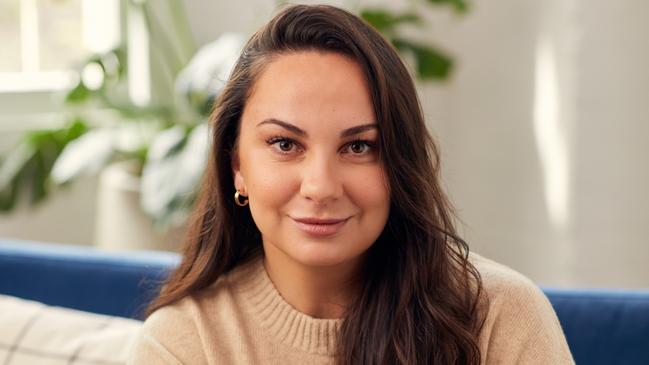Global success story Canva leaves work arrangements to the workers
Canva, one of Australia’s rare unicorn tech companies, is also one of the most sought-after employers, dealing with about 300,000 job applications each year.

Canva, one of Australia’s rare unicorn tech companies, is also one of the most sought-after employers, dealing with about 300,000 job applications each year.
How much of that attraction is due to its relaxed workplace culture in which staff, if they choose, can come into the office a mere eight times a year?
Its global head of people, Jennie Rogerson says the company is working hard to manage Canva’s transition to a big, global company while retaining its start-up feel.
That huge number of applications – the company will take on about 1000 people this calendar year to edge its total workforce to about 3100 – is “an incredible testament to our culture”, she says. “I think for many folks, they are interested in the challenges in product or engineering that we’re leading on. But it’s also an inclusive culture which is based on flexibility. I think that is incredibly important, especially now.”
Canva’s headquarters in inner-Sydney’s Surry Hills is admirably cool and at a recent press briefing the three founders – Melanie Perkins, Cliff Obrecht and Cameron Adams, while older than they were when Canva launched a decade ago, manage that downbeat appearance and presentation of the best Silicon Valley operators. The guys are in jeans and Perkins sports flat sandals and the simplest, short dress.
They’ve built an online graphics platform that keeps expanding and refining its offerings. And while investors have slashed their valuations of the company by as much as 40 per cent recently, Canva can still claim to be worth about $32bn, and retains its aura as a market darling and a huge tech success.
Rogerson plays a key role in attracting talent and has her own inspiring work journey: she began as an executive assistant in December 2018, then moved into a chief of staff role for the founders before becoming global head of people in November.
“We really focus on internal mobility,” she says. “We’ve just launched Canva Pathways, which is our internal mobility platform (where) we open up very transparently on what roles are open, who’s best to talk to, what that looks like, because we’re focusing on really making sure people internally feel like their next opportunity can be in Canva.”
The company is now spread across Australia and New Zealand, Manila, Austin, San Francisco, Beijing and Wuhan, and Rogerson’s role is to try to develop a coherent culture across a very diverse workforce.
Is it still hard to get the right people for the jobs, given the skills shortages here?
“I think we’ve been incredibly intentional with our hiring,” says Rogerson. “We’re really looking at folks with different backgrounds. It’s quite easy to fall into a trap of hiring people with the same personalities, backgrounds and skills set. So we’re really looking a little bit differently at what skills people bring to the table.”
And building teamwork and collaboration has been crucial as Canva has scaled up, she says.
“We’re at a really important moment in time as we start to grow so quickly, to make sure that that culture we’re so proud of is retained,” she says.
“I don’t think it’s necessarily hard (to do) but I think culture is an evolution and so we’re really making sure we’re hiring well, a diverse range of people from different backgrounds, different thought processes, to make sure that everyone who joins the team is adding to the culture change.
“It’s not a culture that static, it’s a culture that instantly evolves and we want it to evolve. It’s not set in time.”
Canva dropped a requirement for people to have a university degree some years back, and Rogerson says it wants to hear from candidates who might not have grown up in an environment where they obtain qualifications.
Instead, it’s about “Are you the right fit for the role? Do you have the right skills? Do you have the right attitude? Do you live by the right values that we would look for at Canva? We’ve really opened up a talent market that we wouldn’t have been able to tap into earlier.”
The company does not require work time in the office apart from those eight days a year – but even then, Rogerson says: “ We don’t track it … it’s a real trust thing. We trust our teams to do the best work from wherever works for them. But we really want to make sure that people are intentional about that flexibility and connection, that the flexibility to work from home works for you and to make sure you’re connecting with your team.”
While it’s not mandated, attendance is higher than in many CBD office, fluctuating at 40-60 per cent of staff.




To join the conversation, please log in. Don't have an account? Register
Join the conversation, you are commenting as Logout